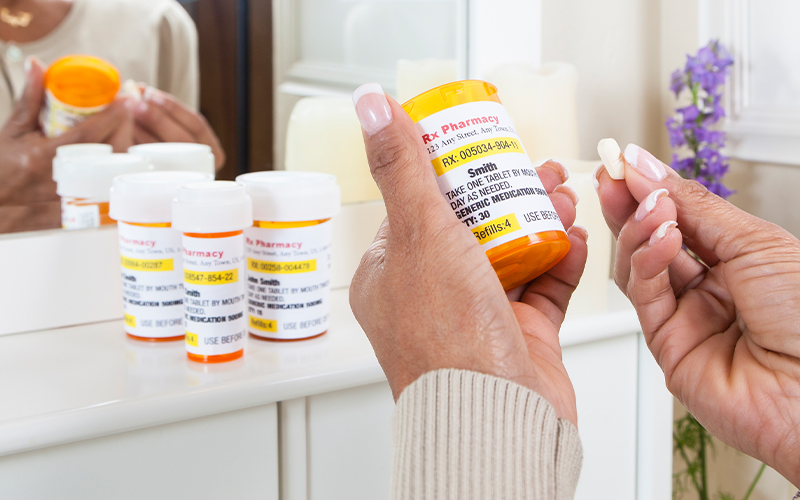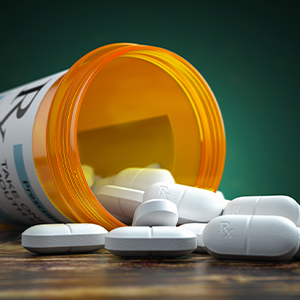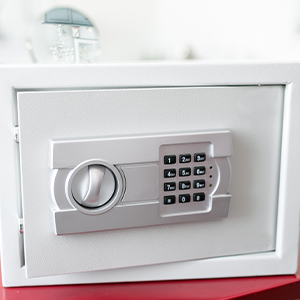Medication Safety Know How

You’ve come down with a cold and wander to your medicine cabinet to try to find something to relieve your onslaught of symptoms. From a decongestant to pain relief to cough suppressants, you seem to have everything you need to try to start feeling better. You also need to take some of your daily prescription medications. But when you get to your medicine cabinet, you notice all of the medication is expired.
Should you still take the medicine you need regardless of the expiration date? And what do you do with all of those expired medications?
Why are Expiration Dates Important?

“There is no guarantee the medication is safe and effective past the expiration date,” says Rachel Lownds, Clinical Pharmacist at Munson Medical Center. “Expired medications may begin to break down, even if we can’t see this happening, which ultimately means decreased strength and potentially, effectiveness.”
What about prescription medications?
Though a difference of just days may not seem significant, many medications, such as antibiotics or those treating high blood pressure or seizures, require stable levels in the body in order to be effective.
"If the medication is past its expiration date, the medication may not be able to ultimately do its job in your body which can be dangerous for many conditions," Lownds explains.
The Best Place to Store Medication
Along with the expiration dates, it’s also important to be mindful of the location where you store your medication.
“Many people are familiar with the traditional ‘medicine cabinet’ in their bathroom, but this location is often not ideal for medication storage,” Lownds says. “The extra heat and moisture from a bathroom can cause damage to medications, making them less effective and unable to last until their expiration date. Instead, store your medications in their original container in a cool, dry place away from sunlight”
Take Inventory of Your Medicine Cabinet

In addition to checking your medication’s expiration date before you take it, consider an annual or even seasonal clean out. This can also help you stay on top of any refills you need.
It’s also important to make sure you’re keeping all medication safely stowed away from others that may have unnecessary access.
“It’s important to ensure all medications, prescription or over the counter, are locked away from children and pets,” says Christina Dean, RN, BSN, CARN, Clinical Coordinator for Munson Healthcare Opioid Initiative with Community Health. “Storing your medication safely helps prevent harmful accidents from unintended ingestion, accidental overdoses, and medication misuse.”
When you’re ready to dispose of any expired medications or those you're no longer taking, go about it safely. Visit our Medication Safety page for a list of Munson Healthcare’s MedSafe Medication Disposal locations, or contact your pharmacy to see if they have a medication disposal container available.
Questions? Ask a Nurse!
Have questions about medication usage or storage? A Munson Healthcare nurse is standing by and ready to help. Call Ask-A-Nurse any time to speak with a registered nurse. This service is FREE and no insurance is required.